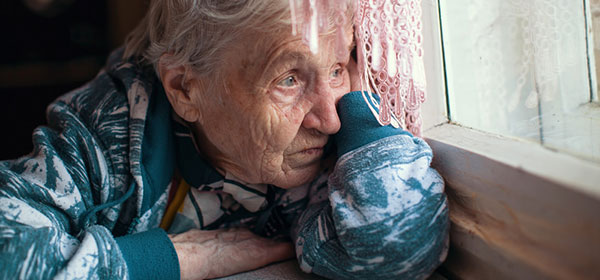Loneliness is a bigger killer than obesity and should be considered a major public health hazard, says the biggest ever study of this social condition.
Researchers examined nearly 4 million people and 218 studies into the health effects of social isolation and loneliness. They found that lonely people have a 50 per cent higher chance of premature death, compared with obesity, which increases the chance of early death by 30 per cent.
Lead author of the study, Dr Julianne Holt-Lunstad says that people preparing for retirement need to place as much importance on maintaining social connections as they do on their finances. This is because the workplace is often the biggest source of companionship.
“Being connected to others socially is widely considered a fundamental human need – crucial to both well-being and survival,” she said.
“Yet an increasing portion of the population now experiences isolation regularly.”
According to the Campaign to End Loneliness, 17 per cent of older people see friends, family and neighbours less than once a week. One in 10 can go for a month at a time without seeing anyone they know.
It is estimated that around 245,000 Australians aged 70 years or older experience social isolation and that, within 20 years, around 3.1 million Australians will live alone.
A University of York study revealed that lonely people are 30 per cent more likely to have a stroke or heart disease, two of the leading causes of death in Australia.
Harvard University found that social isolation activates the ‘fight or flight’ stress signal which, in turn, increases a blood-clotting protein which can cause heart attacks and strokes.
All told, loneliness should be as concerning to people as giving up smoking or watching their waistline.
“Loneliness can no longer be ignored,” said Dr Michelle Lim from the Swinburne University of Technology. “We know from research that loneliness is as bad for you as smoking 15 cigarettes a day.”
Dr Lim believes that technology is increasingly to blame for our lack of true social interaction, adding that increased use of social media means that “emotion is often muted”.
“Another promising way to tackle loneliness is to improve the quality of our relationships, specifically by building intimacy with those around us,” says Dr Lim.
Dr Holt-Lunstad says that we need to consider loneliness as a public health threat, and suggests adding social connectedness as a health factor on a doctor’s medical checklist.
“With an increasing aging population, the effect on public health is only anticipated to increase,” she says.
“Indeed, many nations around the world now suggest we are facing a ‘loneliness epidemic.’ The challenge we face now is what can be done about it.”
Do you feel alone? If not, how do you ensure that you are not lonely?
Related articles:
Lonely but not alone
No need to be lonely
Loneliness in old age

